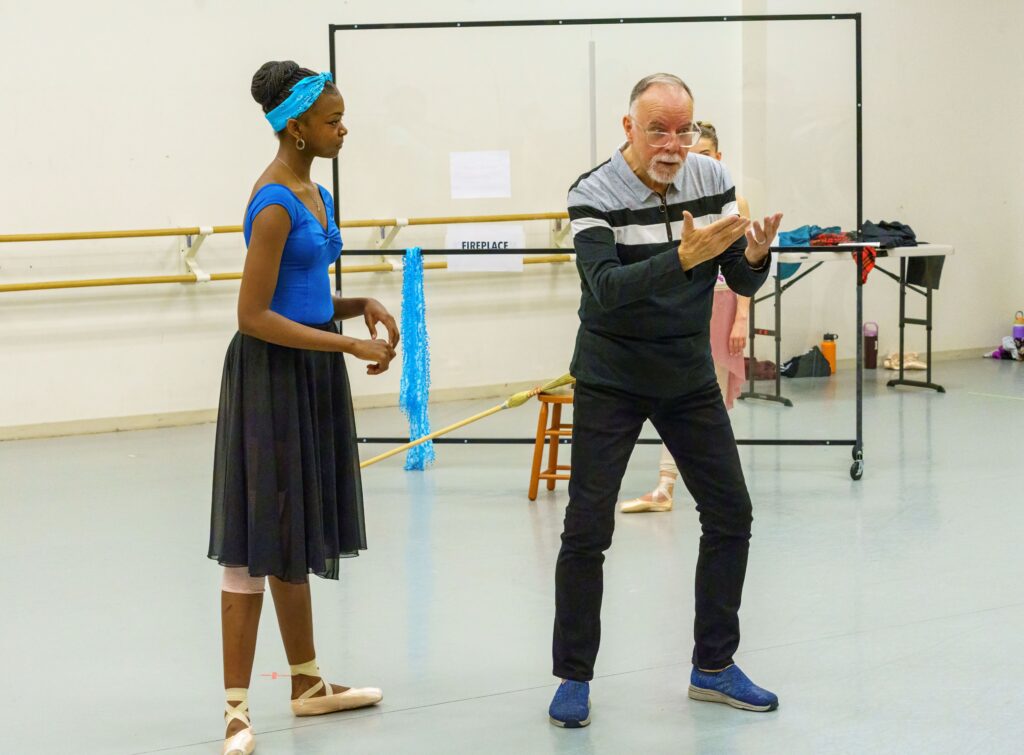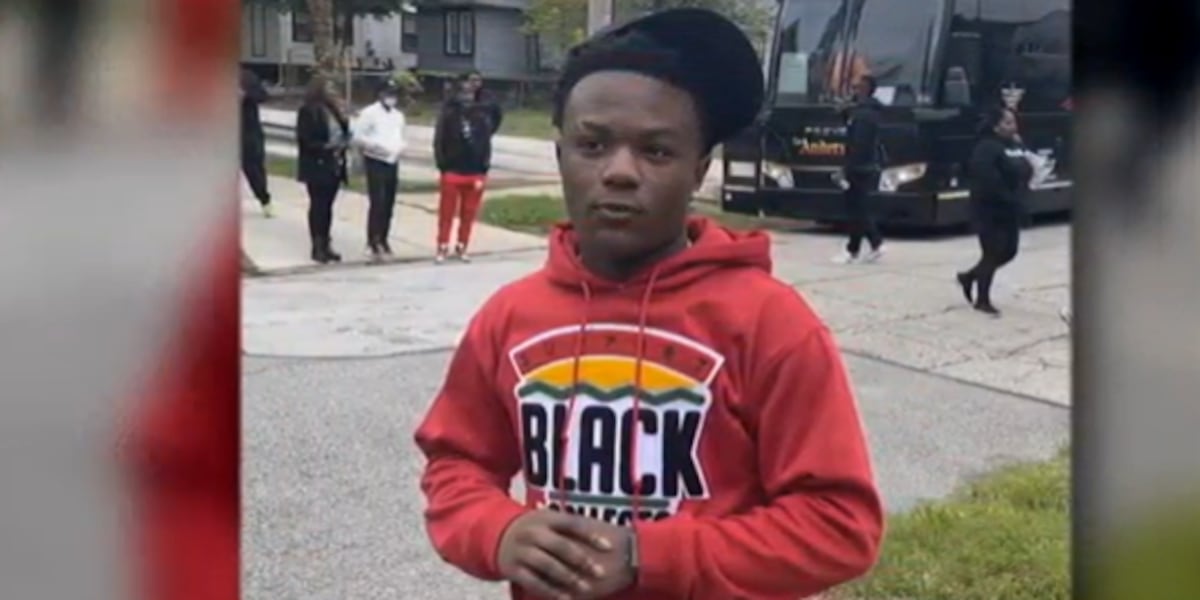Atlanta, GA
The Atlanta Ballet 2 Experience Protects Time for Artistic Growth – Pointe Magazine

Second company experiences can be tricky limbo periods for young dancers to navigate. You’re no longer a student but not yet a corps dancer. Atlanta Ballet dancer Spencer Wetherington, who spent two years in Atlanta Ballet 2 before being promoted to the main company, calls the second company experience a rite of passage. “Arguably probably one of the hardest passages,” he adds, “to try to get your foot in the door and then to keep walking through that door.” Sharon Story, dean of Atlanta Ballet’s Centre for Dance Education, says that she and artistic director Gennadi Nedvigin are in lock-step when it comes to the program objectives of Atlanta Ballet 2 and how to guide dancers through this period in their professional development.
First, they see the second company as a fruitful hiring ground for the main company. More than that, however, the second company is a performing ensemble in its own right, a choreographic lab, and, most importantly, a time for Atlanta Ballet 2 dancers to nurture their artistic development. For many dancers, though, the path to the second and main companies starts earlier, during a two-, three-, or five-week summer intensive program at Atlanta Ballet.
A Pathway to the Second Company
Camille Jackson can trace her involvement with Atlanta Ballet back even further, to age 4. She grew up training at the Centre for Dance Education in its Academy and five-week summer intensive programs, and is currently in her first year with Atlanta Ballet 2, which is typically a one- to two-year track. Though she has broadened her horizons with summer intensives at Pittsburgh Ballet Theatre and The Royal Ballet School in London, she always knew she wanted to return to Atlanta. “Every time I look into the company studio or I go see the main company’s show, there’s never been a moment where I wasn’t saying, ‘I want to be doing this in the next two to three years.’ ”
For students from other schools or regions who have professional aspirations in Atlanta, the five-week summer program serves as an ideal recruiting ground for Atlanta Ballet 2, which in turn feeds directly into the main company. “[Nedvigin] has a wonderful track record of promoting from Atlanta Ballet 2 first into the company before we go out and look for new company members,” says Story. Through their exposure during intensive training and the performance component at the end, summer-study dancers are considered for the full-year Academy program and Atlanta Ballet 2.
A Day in the Life

Jackson and her 16 Atlanta Ballet 2 colleagues begin their day with a technique class led by dedicated faculty or with the main company, followed by rehearsals for second and main company productions. One of Jackson’s greatest and most necessary challenges has been learning the ropes with the corps de ballet. “It’s about ‘we,’ not ‘me,’ ” says Jackson about spending time in the studio or onstage with the main company. “You get into these big, full-call rehearsals and the staff doesn’t have time to go over little details with each individual person. And so I have to take the initiative myself.” Jackson has tested her corps mettle in classical ballets like The Nutcracker and La Sylphide, but she’s particularly excited to dance neoclassical roles this season. She is learning “perfume” and “catwalk” corps roles for the February run of Coco Chanel: The Life of a Fashion Icon, plus soloist roles in Atlanta Ballet 2’s production of Bruce Wells’ new Cinderella.
Refining Their Artistry

While Atlanta Ballet 2 provides valuable experience in learning corps responsibilities, it’s also a time for students to develop their voices. “We hone in on their art,” says Story, “making sure that they keep everything that they’ve learned as a student, but then really watch for the small things that create a professional dancer: the articulation of the feet, the movement, the musicality—all those things that are the polishing steps.”
Wetherington could not agree more. “You can’t have one without the other. If you have aspirations to be a principal dancer, like most of us do, you need to have that practice beforehand. In the same vein, you need to be able to have the humility and the sense of teamwork to be able to work in a corps de ballet.” During his two years in the second company, he learned to focus not just on the “what” and the mechanics of the steps but the “how” and the story behind them.

A Proven Track Record
Twelve dancers from Atlanta Ballet 2 have been hired into the main company over the past five years. While Jackson hopes to join Atlanta Ballet at the end of her Atlanta Ballet 2 experience, she feels confident that the second company is giving her the tools and experience necessary to succeed in any organization. Indeed, Story and Nedvigin take an active role in helping dancers advance if a spot isn’t available for them in Atlanta. “We know people all over the country, all over the world,” says Story. “So we reach out to other companies and say, ‘Hey, we’ve got this talented dancer, what do you think?’ ”
While the benefits of such professional connections are obvious, Atlanta Ballet 2 dancers know that they are bringing reciprocal value. In addition to being cast in main-stage productions, the second company is used as a sort of choreographic lab, with Nedvigin inviting main company members, outside choreographers, and even Atlanta Ballet 2 dancers themselves to create and set work for community performances.
Despite the high expectations set on Atlanta Ballet 2 dancers, Story, Jackson, and Wetherington all agree that the emphasis on personal growth fosters a noncompetitive environment. For any dancer entering these finishing years, Story recommends, “Don’t put so much pressure on yourself that you have to achieve 32 double fouettés. It’s not about that. It’s about the growth year: where you started when you first walked in the doors in August to where you end up in May.” Following one season as an apprentice, Wetherington ended up with a company contract in 2021, and he expects to reap the benefits of his Atlanta Ballet 2 experience for many years to come. “They plant seeds that blossom throughout your entire career.”

Atlanta, GA
Atlanta-based health app finds success in ‘Damp January’

ATLANTA, Ga. (Atlanta News First) – Throughout January, millions of Americans participate in “Dry January,” an attempt to go the whole month without drinking.
Vedant Pradeep’s research has taught him otherwise. The 28-year-old Georgia Tech alumnus is the founder and CEO of Reframe, an app that helps people reduce their drinking. His research shows that a more gradual decline, which he calls “Damp January,” achieves better long-term results.
“We started out trying to help out people with hypoglycemia,” Pradeep said.
But as many startups do, Pradeep pivoted when he noticed many of the people he was helping struggled with alcohol.
“Alcohol is a bad coping strategy, but it is a coping strategy,” Pradeep said.
Reframe, headquartered in Alpharetta, went live in 2020 and has surged to the top of health-app sales in the Apple Store. It offers voluminous options for people to help them cut back or quit drinking, including challenges, counseling, summaries, calendars, stats, and a vast community of users.
“We now have the world’s largest community of people that are trying to cut back on alcohol,” Pradeep said.
Most of all, Reframe has been successful, with over 1 million people using the app. Pradeep says internal numbers show that nearly 40% of users have stayed with it for over a year.
“It helps you understand what alcohol does to your body, how it works,” Pradeep said. “It helps you understand what your triggers are and helps you build these coping strategies.”
It’s also gained support in the medical community. Atlanta cardiologist Dr. Ali Rahimi recommends it to his patients.
“You get a lot of support in an app like that that you don’t get when you see your doctor or therapist a couple of times per year,” he said.
That’s where Reframe fits in with other programs like Alcoholics Anonymous. The app and community are constantly available in a way that’s difficult for other alcohol-reduction programs.
The need is urgent, based on the latest scientific data. The U.S. Surgeon General’s Office publicly discussed the relationship between alcohol and certain cancers earlier this month.
Pradeep has known this for a while and understands that quitting cold turkey leads to slip-ups and then give-ups.
“Alcohol isn’t actually serving you,” he said.
So, as Reframe continues to pile on users, it’s all about making progress toward one’s goal; it’s less about being dry than about becoming your best self.
“That’s the goal,” Pradeep said. “To get to a point where you no longer use alcohol as a coping strategy.”
Copyright 2025 WANF. All rights reserved.
Atlanta, GA
‘Put the guns down’: Atlanta dad mourning teenage son killed in Austell apartment shooting

EAST POINT, Ga. (Atlanta News First) – On Monday, hundreds of people crowded into an East Point shopping center for a candlelight vigil to mourn the death of 17-year-old Kenneth Collier Jr.
Cobb County police have launched a homicide investigation after receiving an initial 911 call on Jan. 9 for gunshots at the Residence at Riverside Apartments in Austell.
In a news release, police officials said they found the teenager with multiple gunshot wounds.
Collier’s family said the body was that of the 17-year-old who was an 11th grader at Eagle’s Landing High School in McDonough.
“Kenneth didn’t deserve to be killed that way. Nobody deserves to be killed that way,” said Kenn Collier, Kenneth’s dad.
Kenn said Kenneth went to see a friend at the Austell complex. He does not know what the circumstances were leading up to the shooting.
“Nobody ever imagines getting a call that your son has been murdered. Your son has been shot, is hurt,” Kenn said. “As a parent, the hardest thing ever to go through. Kenneth was a good kid.”
Kenneth’s death comes roughly seven years after the death of Kenneth’s mother, Tamika Trimble, who also died of gun violence.
17-year-old shot to death at Austell apartment complex, police say
In December 2017, Trimble was shot and killed in her car, with her daughter in the backseat.
“I sat on this same couch and did this interview. Talked about my son’s mom, about his mom being murdered through gun violence. Now, (I) sit here again, without my son, talking about gun violence,” Kenn said.
After that deadly shooting, Kenn said Kenneth acted out and began bullying before channeling his anger.
By 11, Kenneth had written a book advocating against bullying.
He was awarded a proclamation from the City of Atlanta after publishing the book titled “Button Buddy Stops Bullying: And So Can You.”
Kenn said his son got off track and eventually was pulled back into a rough crowd.
“Unfortunately, when you’re still in a situation around your friends and environment, and that’s all you see a lot of times, you can fall back into it,” he said. “As a parent, of course I did everything I can, we did everything we can do.”
Kenn said they recently moved Kenneth away from southwest Atlanta to McDonough where he enrolled at Eagle’s Landing High School. He said his son’s death shows the complexity of the gun violence epidemic.
“We really need to put the guns down,” Collier said.
Cobb County police is asking anyone with information surrounding the shooting incident to call police at (770) 499-3945.
Copyright 2025 WANF. All rights reserved.
Atlanta, GA
The Kyle Pitts Question Continues to Vex Atlanta Falcons

Atlanta Falcons fans will remember when the multi-million dollar acquisition of veteran quarterback Kirk Cousins was going to set misfiring tight end Kyle Pitts on the road to career redemption.
For a while, that looked to be the case. Through the Falcons’ first-eight games, Pitts had 29 catches for 419 yards and three touchdowns. That number included a goose egg he had Week 4 against the New Orleans Saints.
After his Week 8, 91 yard, two-touchdown performance against the Buccaneers, Pitts went MIA.
He had just 183 yards and a touchdown during the final-nine games.
Isn’t it funny just how quickly things can implode and go south?
When Falcons general manager Terry Fontenot offered up his assessment of his team’s failed season on last week, it came as no surprise that he unashamedly pointed the finger at Pitts’s lack of production. This seems to be an annual conversation with regards to Pitts.
“When you take a player that high in the draft, obviously you expect a certain level,” Fontenot said of the highest drafted tight end in NFL history. “We understand Kyle had a really good rookie year, and he hasn’t equaled or exceeded that production since then. There’s no excuses we’re making about it.”
Even given Fontenot’s sleuth-like observations, and for as cathartic as it might also have felt for him personally, it did little to lay out a map of the road ahead with regards to a Pitts future in Atlanta.
The Falcons picked up his fifth-year option before the season. They’re on the hook for $10.9-million guaranteed in 2025. Beyond that, Pitts is scheduled to be an unrestricted free agent.
Considering the hot water Fontenot was already in for the Cousins failure and losing a draft pick in the process, the subsequent double whammy of Pitts having another subpar season is particularly depressing.
Fontenot also finds himself with only four picks in the upcoming NFL Draft. All of which begs the imminent offseason conundrum of deciding whether or not it’s time to simply cut ties and firesale the former 4th overall selection.
Of course, some kind of value can always be found out there, especially if a host of tight end hungry teams really believe they can resuscitate the former 1,000 yard Pro Bowler’s beleaguered reputation. However, the Falcons will be selling low, and the return won’t come close to matching the fourth-overall selection or the $33-million the Falcons have already sunk into Pitts.
Quite clearly, the entire future of the Falcons franchise now rests squarely on the powerful left arm of quarterback Michael Penix Jr., but therein lies the inherent issue.
Pitts inability to develop into a more sure-handed pass catcher doesn’t immediately appear to mesh with the fast ball type of passer Penix Jr. actually is.
Having said all of that, Fontenot is well aware that he needs to do his level best to give Penix as many explosive receiving options as he can as they move ahead with his development.
Throwing the baby out with the bath water with Pitts must ultimately resonate strongly with Fontenot. Plus, running the risk of seeing Pitts resurrect his career elsewhere would presumably be catastrophic for Fontenot’s own future in Atlanta.
Atlanta would obviously like to see a return on Pitts, but how much longer can they ultimately wait?
Decisions, decisions.
-

 Politics1 week ago
Politics1 week agoWho Are the Recipients of the Presidential Medal of Freedom?
-

 Health1 week ago
Health1 week agoOzempic ‘microdosing’ is the new weight-loss trend: Should you try it?
-
/cdn.vox-cdn.com/uploads/chorus_asset/file/25822586/STK169_ZUCKERBERG_MAGA_STKS491_CVIRGINIA_A.jpg)
/cdn.vox-cdn.com/uploads/chorus_asset/file/25822586/STK169_ZUCKERBERG_MAGA_STKS491_CVIRGINIA_A.jpg) Technology5 days ago
Technology5 days agoMeta is highlighting a splintering global approach to online speech
-

 Science3 days ago
Science3 days agoMetro will offer free rides in L.A. through Sunday due to fires
-
/cdn.vox-cdn.com/uploads/chorus_asset/file/25821992/videoframe_720397.png)
/cdn.vox-cdn.com/uploads/chorus_asset/file/25821992/videoframe_720397.png) Technology6 days ago
Technology6 days agoLas Vegas police release ChatGPT logs from the suspect in the Cybertruck explosion
-

 Movie Reviews1 week ago
Movie Reviews1 week ago‘How to Make Millions Before Grandma Dies’ Review: Thai Oscar Entry Is a Disarmingly Sentimental Tear-Jerker
-

 News1 week ago
News1 week agoTrump Has Reeled in More Than $200 Million Since Election Day
-

 Movie Reviews1 week ago
Movie Reviews1 week agoMovie Review: Millennials try to buy-in or opt-out of the “American Meltdown”














